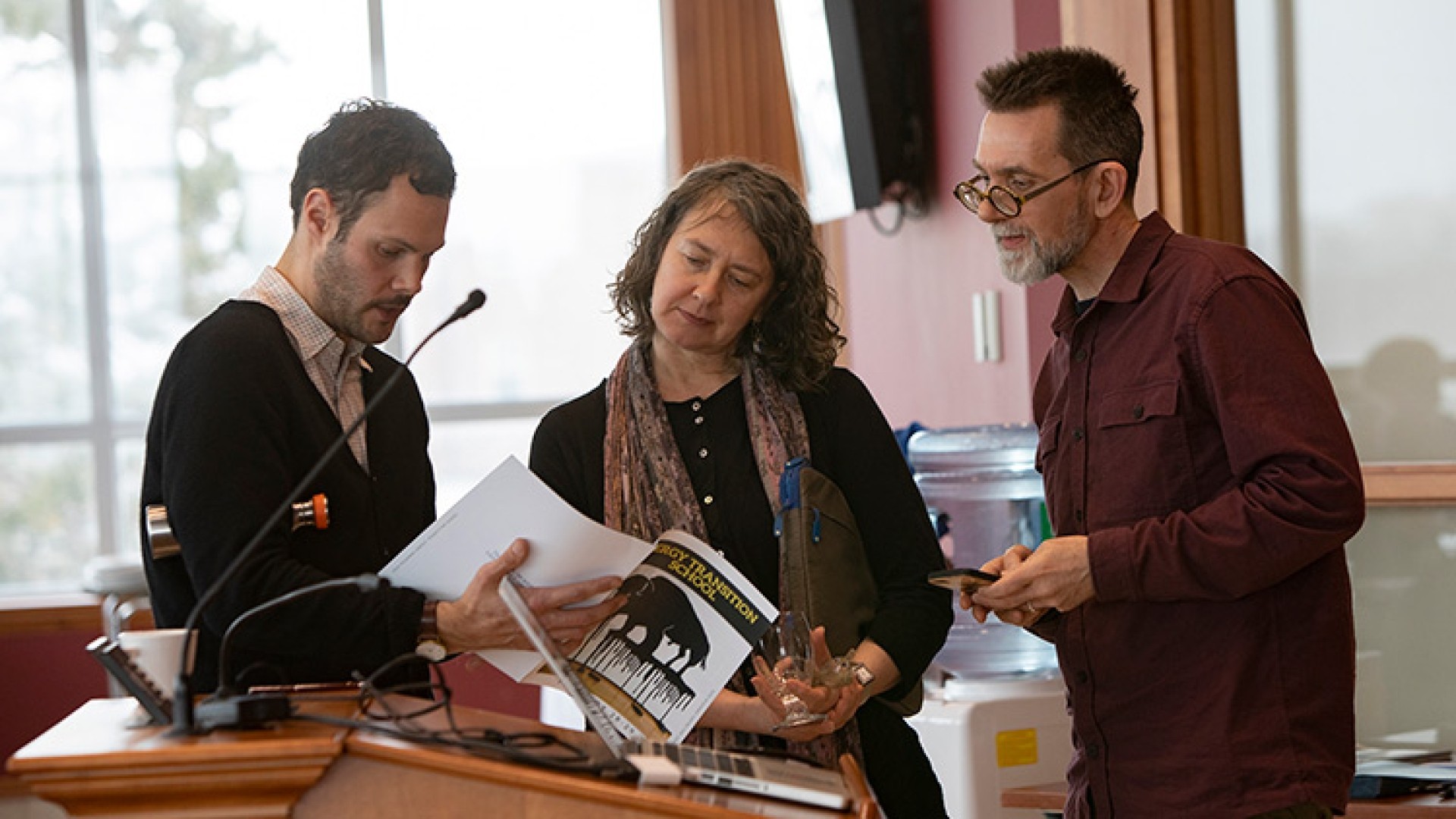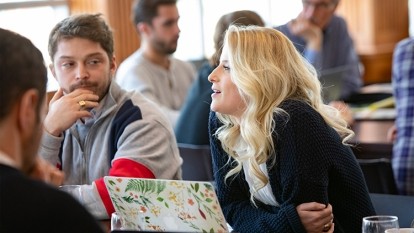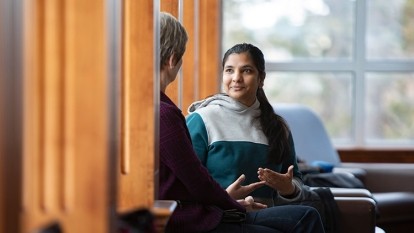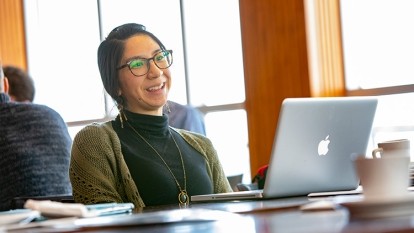
How do we imagine an energy transition?
That was the question participants at a recent Energy Transition School, hosted by StFX’s Frank McKenna Centre for Leadership on Feb. 28-29, 2020, focused on over two days at the multi-session event directed by three scholars, Dr. Jeff Diamanti of the University of Amsterdam; Dr. Imre Szeman, University of Waterloo; and Dr. Jennifer Wenzel, Columbia University.
Organizers from the McKenna Centre have said the event was quite a success and has made an impact it the community, “as it started the discussion around the possibilities of an energy transition, and created concrete solutions that can be taken on in the community.”
Energy transition, they say, is not easily explained, so that is precisely what the event examined.
"Broadly, it means something as simple as transitioning into a world based not on fossil fuels but on renewable, green forms of energy. Practically, and this is what the event explored, it means asking how we have to change the world that fossil fuels built--and this includes habits, social and cultural dimensions, and so on. So, the event asks how we have to understand energy transition not just as a technological or economic problem but one that is also social, cultural, and political."
The event was created as part of the McKenna Centre’s attempt to support ongoing discussions and research on campus. And since climate and environment is a central aspect of discussions on campus, this event was designed to add perspectives to this broad field and bring discussions to campus that we are not already having in an attempt to add new ideas and research to help further engagement with this topic.

The event was attended by StFX students, faculty members and community members who worked collaboratively to find ways of addressing the social, political, economic, and cultural hurdles that stand in the way of substantive energy transition.
Organizers say the workshops were custom-tailored and offered multiple activities and topics to brainstorm and exchange ideas on how to mobilize an energy transition and imagine a better future.
The workshops, they say, gave the opportunity to think critically about ideas such as campus divestment, Canadian policy, and increasing energy literacy, all with special attention to Indigenous sovereignty.

Over the two days, students, faculty, and community members collaborated in working groups on ways to make concrete changes to foster an energy transition. On the second day of the event, the groups presented their ideas on creating ways forward in campus divestment, created a framework for a program that would empower the voices of youth in the climate crisis, and other concrete solutions that could take place in the community.


On Saturday evening, a Q&A titled, "how we got here... and where do we go from here?" opened the floor to students, faculty, and community members to ask the speakers questions on initiating energy transitions. The public roundtable titled “what comes (after) after oil? imagining energy transition” was a highlight of the event as well.

